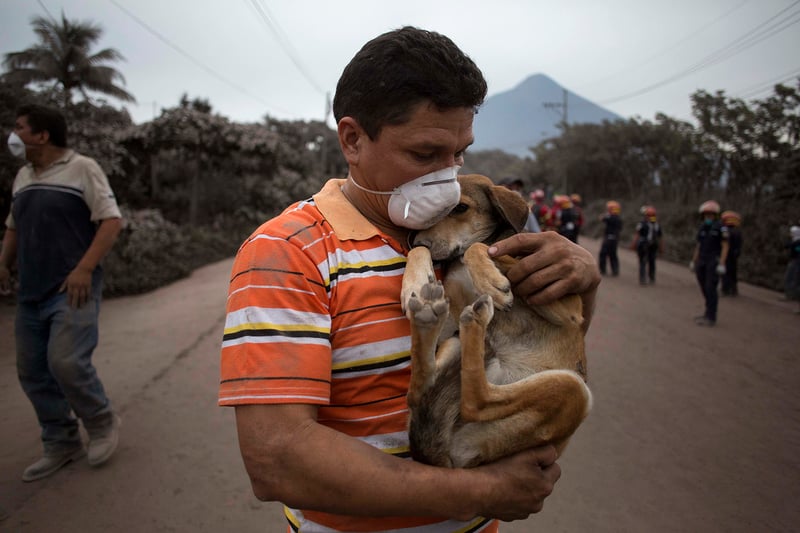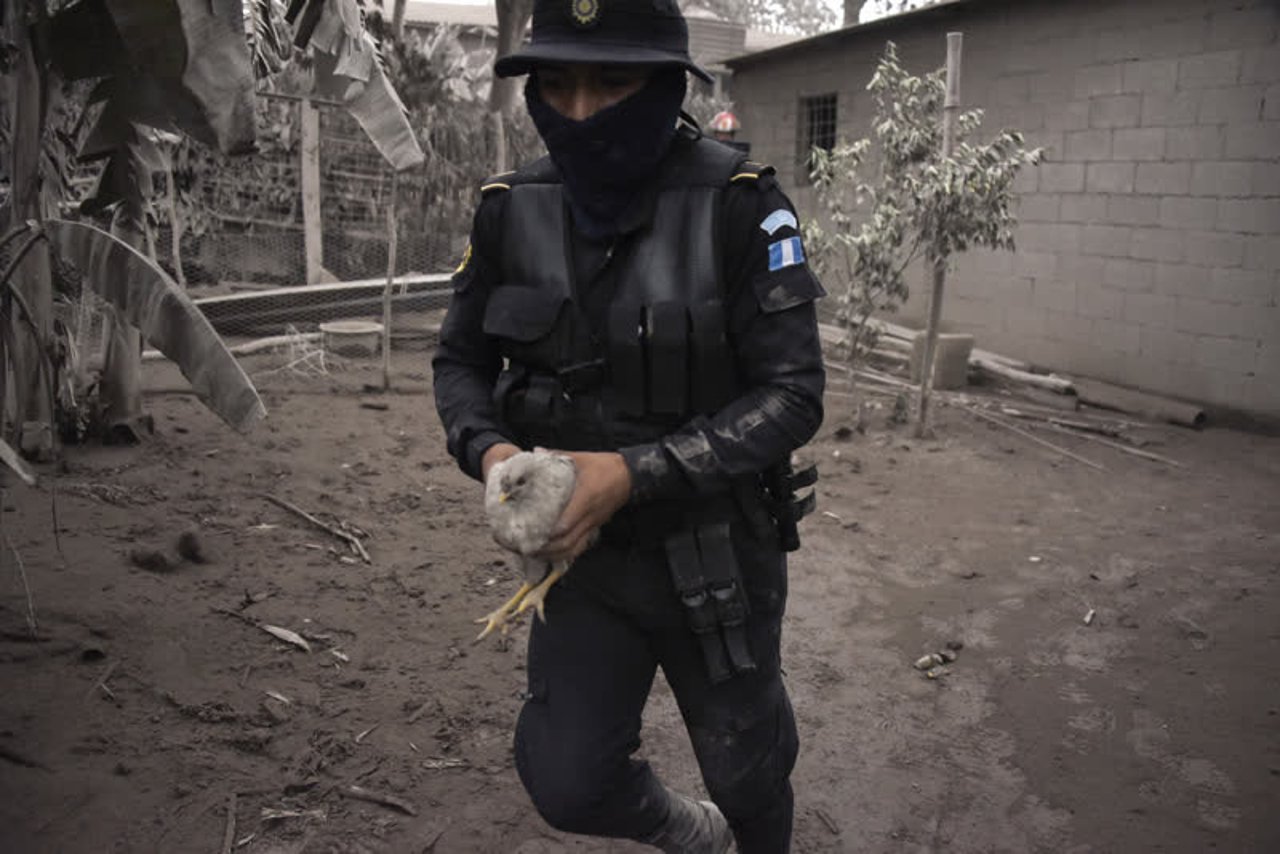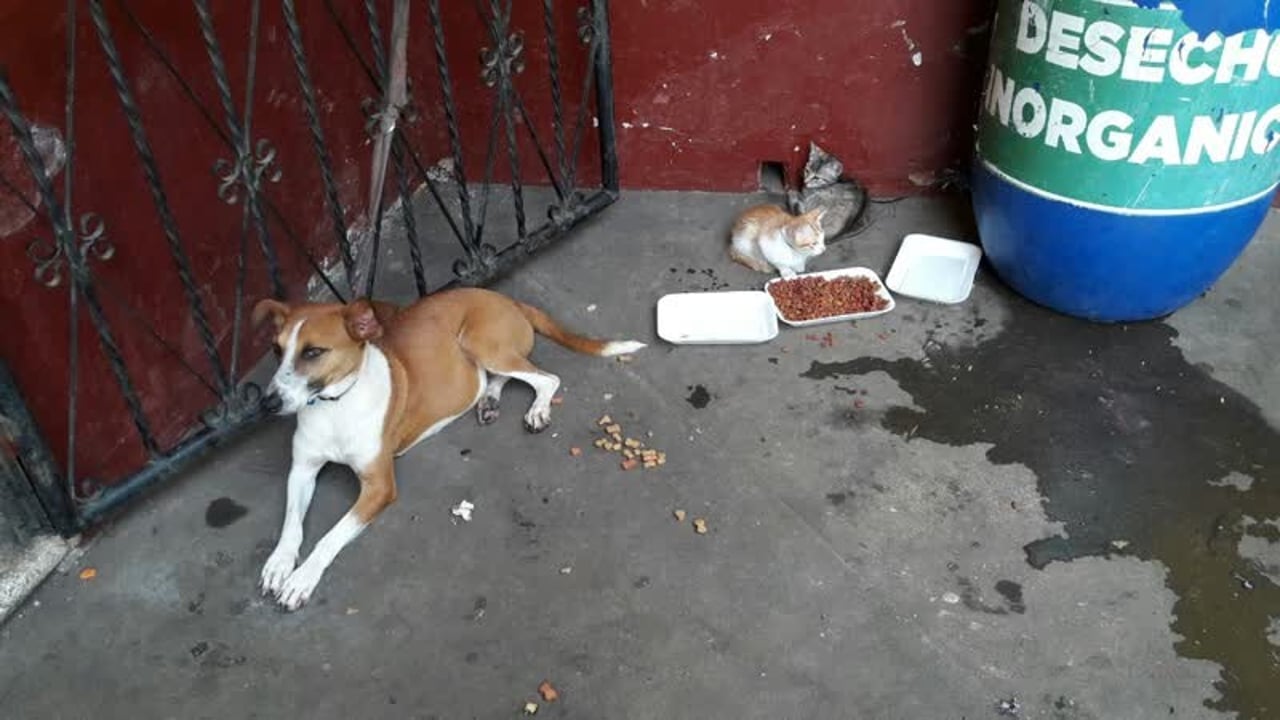
Guatemala: we’re racing to save thousands of animals after deadly Volcano of Fire erupts
News
Cattle, pigs, horses and chickens are just some of the animals struggling to survive after Volcán de Fuego erupted in Guatemala on June 3. We’re providing emergency food, medication and shelter
The eruption produced a river of red-hot lava and thick clouds of smoke nearly six miles into the air, leaving villages, one of them called El Rodeo, buried under the volcanic ash and mud. The volcano is just 27 miles from Guatemala City, the country’s capital.
As many as 200 people are missing and an estimated 75 have died. These numbers do not include the countless animals and livestock who will have also perished.
A police officer carries a chicken in the ash-covered village of San Miguel Los Lotes, in Escuintla Department, about 35 km southwest of Guatemala City, on June 4, 2018, a day after the eruption of the Fuego Volcano. At least 75 people were killed, according to the National Coordinator for Disaster Reduction (Conred), when Guatemala's Fuego volcano erupted Sunday, belching ash and rock and forcing the airport to close. Photo by AFP/Johan Ordonez
Many people have fled with their animals and taken them to shelters, so we’re assisting injured and sick animals at these locations.
Difficulty gaining access
Due to safety issues and risks of secondary eruptions, some badly affected villages are currently off limits.
Our disaster response team is working with volunteers from local nonprofit, Equino Sano Foundation, to gain access to the disaster zone, so we can help as many pets and farm animals as possible.
We're are on the ground organizing teams of vets to help animals and render assistance as needed. This initial response will include emergency food, medications and temporary shelters for pets and poultry.
Our global director of disaster management said: “Seeing the impact of the volcano here is devastating. The government and humanitarian agencies are doing a fantastic job."
“Right now, our work is to help those animals in dire need; injured, without food or water and at high risk of disease. Our aim is to help those who are in shelters first, and once safe to do so, race to those who have been left behind."
“Local communities who have survived this catastrophe will only suffer more, if they have no animals or livestock to help them long after the aid has gone, with their livelihoods, transport and food.”
We look forward to sharing updates on our work to help Guatemala's animals recover from this crisis through email; sign up to receive our updates here.
Top image provided by AP Photo / Luis Soto
“Local communities who have survived this catastrophe will only suffer more, if they have no animals or livestock to help them long after the aid has gone, with their livelihoods, transport and food.

